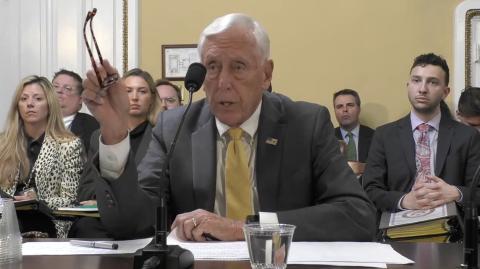“...Mr. Chairman, let me reaffirm what I’ve said throughout this process and throughout my career: our debt poses a legitimate threat to the long-term success of the American economy and the American people. Putting America on a fiscally sustainable path ought to be a goal for every Member of this body.
